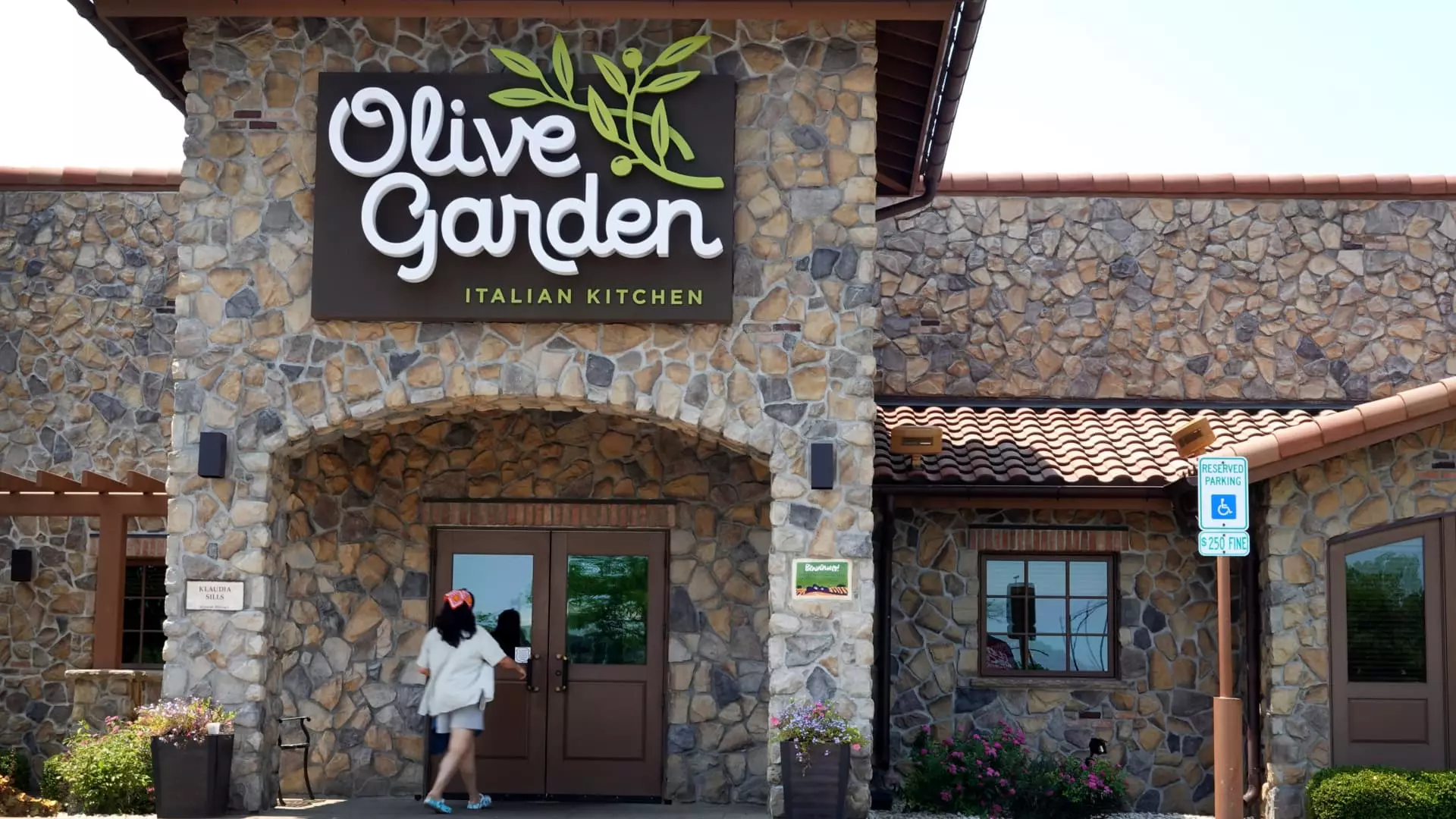Darden Restaurants recently disclosed disappointing quarterly earnings that have ignited conversations about potential underlying issues within its flagship establishments, particularly Olive Garden and its fine dining segment. While the company’s net income rose slightly, availability of growth and consistent performance is becoming a concern. The earnings report for the quarter ending August 25 fell short of analysts’ expectations, highlighting a mismatch between anticipated performance and actual results. The adjusted earnings per share were reported at $1.75 against the forecasted $1.83, while revenue of $2.76 billion compared unfavorably to the anticipated $2.8 billion.
Despite the underwhelming performance figures, CEO Rick Cardenas expressed a resolute belief in the strength and resilience of Darden’s operational strategies. He emphasized the importance of prioritizing long-term success over immediate gains, as the company strategizes to meet evolving consumer needs. Interestingly, shares showed a 10% increase in premarket trading, which suggests that investor sentiment remains cautiously optimistic amidst a backdrop of uncertainty. This divergence raises questions about how market perceptions can sometimes differ from quantifiable financial realities.
Analyses of different segments within Darden reveal a complex picture. The Olive Garden faced a significant decline in same-store sales, decreasing by 2.9%, prompting the chain to reintroduce the popular “Never Ending Pasta Bowl” promotion in an effort to entice customers back. However, it’s noteworthy that the fine dining segment, including prestigious establishments like Eddie V’s and The Capital Grille, experienced a staggering decline of 6% in same-store sales. In contrast, LongHorn Steakhouse stood out as a beacon of hope within the struggling financial landscape, showcasing a commendable growth of 3.7% in same-store sales, solidifying its position as a key performer post-pandemic.
Through the turbulence, Darden’s leadership is holding firm to its annual outlook, projecting earnings per share to range between $9.40 and $9.60, along with targeted net sales of between $11.8 billion and $11.9 billion. This steadfastness appears to be a reassurance not just for investors but also for stakeholders who rely on the company’s stability. While the current quarter’s performance may have been disheartening, the sustained focus on operational adjustments signals that Darden is addressing market demands pragmatically, ensuring that they are not sacrificing long-term growth for short-term fixes.
Darden Restaurants faces notable challenges highlighted by weaker-than-expected sales and earnings results. The mixed performance across its various dining segments calls for a strategic reassessment to ensure alignment with consumer preferences. While leadership exudes confidence in maintaining a long-term vision, the company must navigate these waters diligently to restore sales momentum and bolster customer loyalty. As Darden embraces promotional campaigns and focuses on gaining back lost traffic, industry observers will be watching closely to see if these initiatives will result in a meaningful turnaround in the coming quarters.

